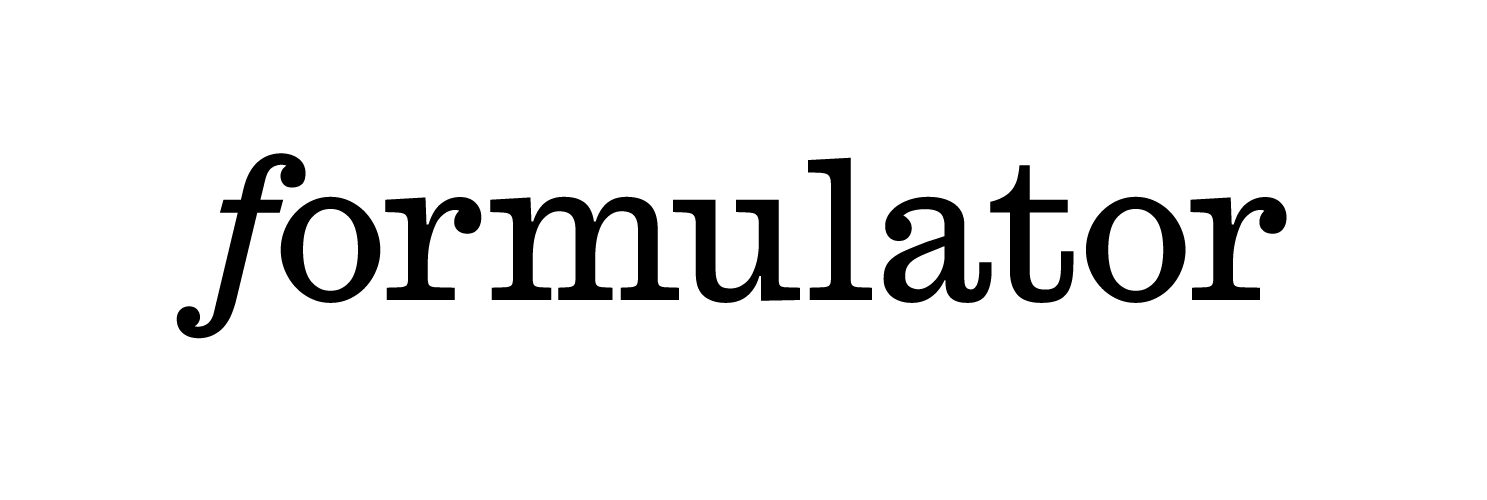
For Therapy Professionals
Prepared for the best
What if you could have a relevant, rich understanding of your client’s situation already in the first meeting? You could have a clear picture of the person’s coping strategies and how they affect their life and relationships, as well as what changes they are motivated to work on. The client would be in the right place, and they would understand what the problem is and what needs to be addressed. Both of you would be well prepared for the meeting and your collaboration could start immediately. Caring for your professional well-being, by allowing you to be prepared and feel confident is equally in our interests.
This is how you can make your practice stand out with Formulator:
-
A good case formulation strengthens collaborative and active participation towards agreed goals. It reinforces the feeling of being heard and validated by putting the most relevant issues for the client to the center of care from the very beginning.
A client feels recognized and heard when they are met holistically, as autonomous individuals, and exactly with the challenges they sought help for. Case formulation allows your client to be prepared for your appointments, and to get the best out of their valuable time with you.
-
Understanding the psychological processes behind the client’s distress brings a great amount of value to appointments compared to the symptom check lists that are typically done in the beginning of therapy. The case formulation approach helps you to see below the surface and guides the intervention to directions that are most relevant for the client.
-
All therapeutic work starts by creating a trusting environment. A therapeutic alliance, that consists of bond, goal setting and tasks, has been found to be one of the most important aspects of successful therapy regardless of therapeutic school or education.
Bond includes feeling of mutual respect, and trust is a prerequisite for a working alliance. In a trusting relationship problems can be discussed and reflected upon, and goals can be created. Moreover, the dyad needs to agree on the tasks that need to be done in order to reach the necessary change.
Formulator allows to reach the core issues earlier, allowing for a deeper and a more structured understanding of the problem for both the client and the clinician. Through the deeper understanding from the part of the participant it increases their readiness and motivation, facilitating shared goal setting as a requirement for alliance as a key factor of success.
This can be done with Formulator.
Make sure your clients leave their first meeting with gained insights and feeling that there is a shared meaning and focus. Watch here how the the digital case formulation looks like to your client.
“Formulator has succeeded in building a unique tool that can benefit clients and therapists. Using a natural language processing conversation agent, Formulator helps the therapy client generate a beginning case formulation. The product is engaging, feels empathic and covers essential areas commonly discussed in an initial psychotherapy intake evaluation. Clients benefit from reflectively engaging the tool as well as from the evidence-based psychoeducation, and gently worded suggestions, that are provided. Therapists can quickly learn about their clients and can consider ideas for therapy that are tailored to their client’s needs.”
Tracy D. Eells, PhD. Professor of Psychiatry and Behavioral Sciences, University of Louisville
Formulator Psychological and Clinical Advisor
Make the first step of the journey the easiest step
Formulator provides a low-threshold service for reflecting one’s situation. It also gives a safe space for the individual to explain their situation with a personal voice and in their own words. This helps identifying the areas of improvement and increases motivation for change. The dialogue allows individuals to begin a self-healing process that is based on improved self-understanding.
The case formulation dialogue gives a possibility to accelerated alliance between the client and the professional.
Here you can read how Formulator works in the different stages of therapy: in the beginning, in the middle and in the ending phase of the process.
Case Formulation
It is generally agreed that case formulation is a process of developing a hypothesis about the causes, precipitants, and maintaining influences of a person’s psychological, interpersonal, and behavioural problems, as well as a plan to address these problems.
Creating a case formulation can take up to three to ten sessions depending on the clinician’s theoretical background and treatment experience. The use of a case formulation is seen as a central part of good clinical praxis and is one of the central pillars of quality control. The case formulation increases person-centred care and the valuable outcomes of it. When compared to assessment as usual, a high-quality case formulation ensures a more coherent understanding of the client's and the employee's goals, tasks, and commitment to care. It is widely accepted that what shows early in treatment plays a vital part later.
Want to know more?
Download your free case formulation guide here to learn basics about case formulation, its theory and background. After reading the guide you’ll know why and how a proper case formulation is built in the beginning of a therapeutic intervention.





